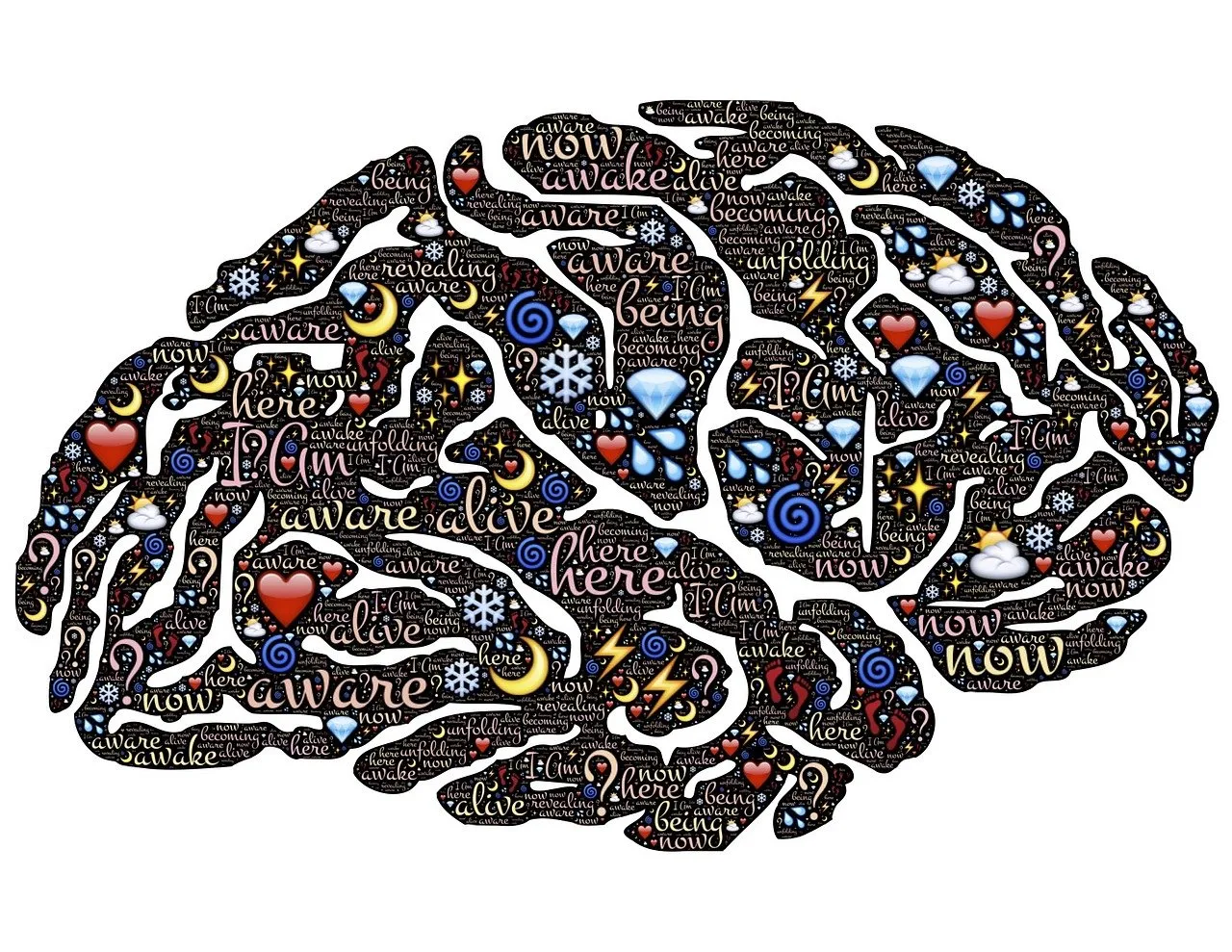
A study of 36 patients with brainstem lesions revealed that the majority of those in comas had damage in a specific area of the brainstem, while most conscious patients did not.
--- From a great post on Futurism (seriously, one of my favorite sites. Follow them on Facebook now and set their posts to show up first in your feed).
Mic drop.
There it is, the elusive concept of consciousness found at last! But is that all? The article describes consciousness as "awareness, sentience, a person’s ability to experience and feel." If we can replicate those things, have we created sentient "life"?
I started discussing this with my brother (who studied philosophy) and another friend (who also studied philosophy) in a private Facebook chat. I've been trying for some time to get them to move our discussions over to Steemit so others could participate and so we might even earn some rewards for our efforts. Here's the conversation so far which started today with the sharing of the article.
Me:
What is consciousness? An undamaged connection between the brainstem and the rostral dorsolateral pontine tegmentum.
Mic drop.
Harvard May Have Pinpointed the Source of Human Consciousness
My Brother:
I don't think this article has said anything about "what consciousness is". It simply described, in better detail, an area of the brain that they believe is key to maintaining consciousness.
But that's already what everyone talking about the "hard problem of consciousness" has been assuming - that a small portion of the brain, if damaged, would end or impair consciousness. But the simplicity of that answer, and the simplicity of the study linked here, does not even begin to approach the complexity of a question like "What is first person experience?" Most people who are talking about this question already assumed that the evidence shown above would pop up eventually, yet they still have tons of questions.
An undamaged connection between the brainstem and the rostral dorsolateral pontine tegmentum is not consciousness. It's a collection of atoms. Why a collection of atoms, any collection of atoms, should be so closely linked to the reason I can have experience at all is an incredibly complex and mind mindbogglingly difficult question to both answer and understand. Knowing the exact particles involved doesn't make the question any less difficult or mysterious.
Very cool from a science perspective though.
In the same way, the atoms of the eye are not sight. There is 0 controversy around the idea that the eye allows us to see, but no one will ever make the mistake of saying that the eye "is" sight.
Me:
Sigh. Silly philosophers over complicating things. 😉
Sight is just a word. A word to describe the emergent properties of "eye" atoms in a specific state. Humans mythologize what we don't understand. Once we understand the individual pieces, we historically get closer to understanding the emergent results.
The article does describe consciousness as arousal and awareness. When we can fully understand the pieces, and how they are arranged, we can synthesize them and create what the word "consciousness" describes. That combination of arousal, awareness, memory, etc can then "learn" given appropriate stimulus over time, etc. Will it then be alive? To me, this is incredibly fascinating and exciting! To say "well, cool for science" seems to disregard the greater philosophical understanding that will be possible in the future because of the ability to create, simulate, tinker with, and evolve the emergent result of these physical things which we call consciousness.
To me the interesting philosophical discussion now becomes, do we experiment further? Do we start tinkering with, severing, etc these atoms in conscious species to learn more? What ethical concerns exist there?
My Friend:
Luke, it's difficult dealing with philosophers, especially those who are also romantics. This is a favorite poem of mine (by Whitman) which sums it up nicely:
"When I heard the learn’d astronomer, When the proofs, the figures, were ranged in columns before me, When I was shown the charts and diagrams, to add, divide, and measure them, When I sitting heard the astronomer where he lectured with much applause in the lecture-room, How soon unaccountable I became tired and sick, Till rising and gliding out I wander’d off by myself, In the mystical moist night-air, and from time to time, Look’d up in perfect silence at the stars."
I think I straddle both worlds, and they feed into one another. I'm a mystic and romantic, and often the science makes me more so. I enjoy learning the "facts and figures", but not to suck the mystery and wonder away from the particular subject of query. Rather, it usually feeds my interest and wonder more.
If "sight" is simply defined as "the apprehension of light patterns through the stimulation of optic nerves" (or something technical like that), it is no less marvelous... but "sight" is more than that. It is the brain's interpretation of those light patterns, a billion mental associations firing in an instant to allow me to see a bug or tree or smartphone. I want to know how sight works, but it is so much more than the sum of its parts.
I'm up for calling it (sight, consciousness, personality, thought, whatever) an "emergent property" of a collection of neurons... but isn't that just another mystic term wrapped up in a fancy dress? One calls it "a mystery of God's creation" that we may one day understand better. Another calls it an "emergent property" that we may one day understand better.
The romantic philosophers just want to be sure the analytic scientists don't ignore the wonder and inherent mystery of this universe. It's more than mechanics and chemistry.
At least that's what I want to believe ; )
My Brother:
Reductionism, to me, does not accurately describe phenomenal reality. I can say "Everything is atoms", which is scientifically true, but it is uninteresting and it answers no meaningful questions.
If someone thinks that "consciousness is a collection of atoms here" is an acceptable answer to any questions in phenomenology or the theory of mind, then it's hard for me to believe that the questions have been fully understood.
Reductionism is an infinite slope. An undamaged connection between the brainstem and the rostral dorsolateral pontine tegmentum is just a collection of molecules. A collection of molecules is just atoms, is just quarks, ad infinitum.
To say that consciousness is "just" a collection of smaller things tells me nothing interesting. It misunderstands just how crazy the idea of an emergent property is.
Any question in the world can be answered through some sort of reductionism, or through defining x as x, but those answers are not meaningful or interesting imo.
The reason this is important, is because you're going to start seeing people co-opting the reasearch that these scientists do to make wide sweeping moral and political judgements about who we are and what is acceptable.
Getting the philosophy right and understanding the nuances and complexity of the arguements isn't just "pie in the sky" thinking. It's what shapes politics and more in the real world.
Me:
(To My Friend):
but isn't that just another mystic term
I don't think so. I think "emergent properties" have been defined and understood throughout history in greater detail. We now understand what causes lightening and thunder. It's no longer just this emergent property of some storms. That knowledge informs our understanding of our world, electricity, etc. I don't think that makes it any less amazing to experience. The difference (for me now) between using "God's creation" language over more scientific terms like an emergent property is that most emergent properties have historically been explained over time. We get to understand more as we improve our measurement tools. Can the same be said about our understanding of God or is that just a story we tell ourselves as we adapt and change as a species to our environment? The changes in religion over time seem to me to be sporadic and somewhat chaotic responses to outside pressures, not a completely rational result of new understanding. But again, that's just my perspective now.
(To My Brother):
reductionism
We've talked about this before, but I think we're doing the whole "categorical error" thing again. Yes, technically, everything is atoms, but that's on a different categorical level, IMO. To know exactly where what we call "consciousness" exists means we can do further experiments and studies to better understand how this emergent property comes to be. What if those molecules are slightly altered? At what percentage of damage does consciousness still exist? How do those molecular, electrical, and chemical interactions influence the experience of consciousness? To me, I think it's possible no more exciting revelation regarding the study of consciousness has ever come about in our lifetimes! Philosophers can talk until they are blue in the face about theories of consciousness, but when those physical properties are actually understood and the emergent properties which results from them are understood from a cause and effect perspective... WOW! That has the potential to settle the debate completely, IMO. It will be no more mysterious than when I flip a switch and see the light in my living room turn on. It's a deterministic result which would have been seen as magic by more primitive, uninformed minds.
Getting the philosophy right and understanding the nuances and complexity of the arguments isn't just "pie in the sky" thinking. It's what shapes politics and more in the real world.
I completely agree. As we're still searching for definitive answers, these questions will remain difficult and elusive. If (and when?) we can turn on a full artificial consciousness with a flip of a switch (on, off, on again...), what then? How will that reality change our self-understanding as a species? How will we see ourselves compared to other species which also have consciousness and those who don't yet?
That's certainly an interesting discussion. One I believe will be greatly influenced (and improved) by this and other discoveries like it. I'm really excited about that because, to me, it points towards understanding more of "what is" not what we think, what we want, what we believe, or what we pretend to believe. Knowing what is leads to better decisions about what we'd like to create next (IMO).
Side note: I so want to take this conversation (and others) and have them over on Steemit. Would that bother anyone here if I did? Others might also have some interesting input we could all benefit from.
Edit: entries below added after this original post went live.
My Brother:
Luke: I think it is a category error to say that consciousness is the same thing as a particular arrangement of molecules. It is correct to say that lightning or a rock or tissue "is" a particular arrangement of particles, but consciousness itself, the object of the study of phenomenology, cannot be considered identical to the particles in the same way. Even in a wholly materialistic conception of consciousness, they just aren't the same thing. Phenomenal experience is not the same thing as "brain" even if phenomenal experience is caused by brain.
Also of note: modern alternative theories of mind, such as a variety of forms of idealism, are not proposing some alternate, non factual reality. They're using the same empirical baselines that we all use. Their explanations have to account for empirical phenomena too. And they do - just with a different meta explanation for "why" an experiment gives us the results they do.
These questions are not unanswered because we don't have enough data. They are hard because even in a world where we can imagine having a near perfect empirical understanding of the brain, compelling alternative explanations for the SAME data set exist. That's why the questions still exist.
Me:
Phenomenal experience is not the same thing as "brain" even if phenomenal experience is caused by brain.
I get that to some degree, but I have trouble separating out phenomenal experience with any other form of materialistic determinism via cause and effect. If we're talking about the human experience of consciousness, I see that in the realm of psychology. Same as if we talk about how a human feels about lightening or their thoughts on when tissue in the womb becomes a life, or on how a rock can be used immorally to cause harm. These are important questions for sure, but to me, the physical reality of the things in question greatly inform our experience with them. If a rockslide kills someone, we don't assign moral blame because we recognize rocks have no agency, they can not be aroused or aware. Our knowledge of the physical reality informs our philosophical understanding.
Why should some cause and effect situations be separate out from others? Simply because some involve "us" and others "just" involve atoms outside of "us"? I guess I'm still thinking too much like a programmer and not like a philosopher. If A causes B and if you remove A, B completely goes away, then it's hard for me to think about B without saying it is somewhat equivalent to A, especially if we could simulate A and get B by synthetic means.
They are hard because even in a world where we can imagine having a near perfect empirical understanding of the brain, compelling alternative explanations for the SAME data set exist.
I guess I see things differently because I'm thinking in terms of the future simulated realities we will create. When consciousnesses can be turned on and off at will, imagine how many millions of experiments will take place? Imagine how many variations we will produce and the types of questions we will ask and answer? I think the more accurate the information we use, the more clearly we can see which explanations can be safely discarded because they don't fit what we've discovered or what we simulate.
So that's our conversation so far.
Do you think Steemit should be the place for more conversations like this? Do you also have groups of people you talk with like this? I have many of these conversations in private DMs and think many others would find them interesting as well. Not only that, I want more diverse opinions and views. I want to learn, grow, and expand my thinking.
What is consciousness? What roll does philosophy play in defining it?
I hope you found this conversation interesting.
Image Credit: johnhain on Pixabay, CC0 Public Domain
Luke Stokes is a father, husband, business owner, programmer, voluntaryist, and blockchain enthusiast. He wants to help create a world we all want to live in.

